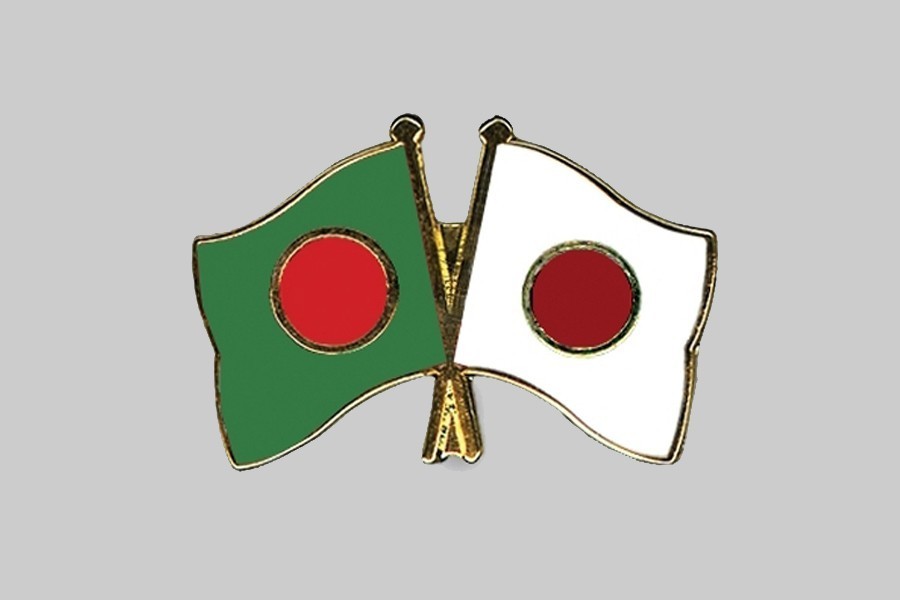The prime minister urged Japanese businessmen to make a larger investment in Bangladesh. At the same time, the outgoing Ambassador of Japan to Bangladesh ITO Naoki, paid a courtesy call to her at Gono Bhaban in Dhaka.
"Bangladesh is a lucrative place for investment. Japanese private companies can invest in Bangladesh on a larger scale," she said.
Bangladesh's economy, one of South Asia's most free-market and trade-oriented nations, is steadily growing into one of the most promising and lucrative in the region. Japan will maintain Bangladesh in its geostrategic orbit due to the country's 164 million consumers, expanding middle class, higher purchasing power, domestic demand, affordable labour, and quick speed of economic development.
Due to worries about overdependence and supply chain disruptions in the wake of the epidemic, Bangladesh can position itself as an attractive alternative location for Japanese businesses looking to pivot away from China.
Though Japanese investment in Bangladesh is a recent phenomenon, during his 1973 Japan Visit, Father of the Nation Bangabandhu Sheikh Mujibur Rahman sought Japanese investment in Bangladesh.
Shinzo Abe's 2014 visit was the turning point in attracting Japanese investments in Bangladesh. Prime Minister Sheikh Hasina followed the economic diplomacy of his father as he emphasised Japanese investment in Bangladesh.
Bangladesh-Japan investments relation expands in areas such as gas and coal, blue economy, health, and human resource development. The Matarbari deep sea port is a textbook example of taking Bangladesh-Japan investment cooperation to a new horizon.
The Japanese private sector could be a major driver of economic growth in developing Bangladesh.
Bangladesh is attracting a lot of interest from Japanese businesses as a potential new investment location. Only 82 Japanese companies had stakes in Bangladesh ten years ago. Due to this, many Japanese businesses have decided to invest in Bangladesh during the past ten years. A total of 300 Japanese businesses operated in Bangladesh last year, up from 278 in 2018, 260 in 2017, and 245 in 2016.
Following this, on 12th August 2020, Bangladesh and Japan signed a loan deal comprising Japanese investments in seven mega projects in Bangladesh. When implemented, the people of Bangladesh will be the real beneficiaries of these projects. One can also argue that these projects will help Bangladesh become a middle-income country.
Japanese trading companies are looking to invest in the economic zones, which can lead to employment creation owing to the manufacturers and sizable investors. It is widely held that Bangladesh's economy can be enormously facilitated by its relationship with Japan, as Japan is the third largest economy in the world.
Japanese Special Economic Zone
The Bangladeshi government and the Japan International Cooperation Agency are creating a Japanese Economic Zone on 1,000 acres of land in the Araihazar Upazila in the Narayanganj District of Bangladesh (JICA). Japan hopes to attract USD 1 billion in investments from about 100 businesses.
The Bangladesh Special Economic Zone, also known as the Japanese Economic Zone, has attracted the interest of several businesses from various industries. The government has already allotted 620 acres and anticipates handing over the final 380 acres by June this year.
The Japan International Cooperation Agency (JICA) is currently conducting a feasibility study on the Mirsarai economic zone. The Matarbari-Maheshkhali area, which is being developed as an energy hub and industrial zone, is where the third potential economic zone in the Matarbari-Maheshkhali area may be located. Both nations will benefit from this arrangement.
By 2024, Bangladesh will leave the LDC category and be compelled to adopt new trading rules. Additionally, it must be integrated into local supply chains and speed up the exchange of goods and services with trading partners. Therefore, it is past due for Bangladesh to advance research and FTA/EPA negotiations, especially the RCEP and with Japan.
A better economic system and investment climate would result from such an economic framework, encouraging corporate activity and supporting Bangladesh's further development. Bangladesh's economy may benefit if Japan encouraged its businesses to move manufacturing facilities there from China and added Bangladesh to a list of favoured locations to relocate the firms.
Accelerating Japanese Investments in Bangladesh
According to a Japan External Trade Organization (JETRO) survey, 73.2 per cent of the 57 companies interviewed said Bangladesh is their top priority for business expansion; 61 per cent said the country has high growth potential. Thanks to a stable political environment and the government's audacious gamble to build essential infrastructure, which has helped to draw foreign direct investment and boosted the economy, the business environment has experienced notable advances over the past ten years.
The domestic market of Bangladesh, with 170 million consumers, is growing rapidly, with the country set to achieve developing country status by 2021. It is hoped that it will bolster cooperation following the FTI signed between Bangladesh and Japan.
In the latest survey, the companies considered competitive human resources, export-oriented and backward linkage industries with a huge domestic market for consumer goods, infrastructure development, and public-private partnership as opportunities for investment in Bangladesh. Besides, the supply of cheap labour along with raw materials also works as a catalyst for them.
Bangladesh's main exports to Japan are expected to be significantly impacted by LDC graduation. Along with financial support for infrastructure development, significant investment from the Japanese private sector has also been made.
These developments would hugely impact Bangladesh's industrialisation and economic diversification through the transfer of technology and the creation of numerous job opportunities.
The alliance between Bangladesh and Japan can be strengthened by increased commerce, investment, and technical cooperation, which will ultimately deepen their bilateral ties. It might, in other words, reshape Bangladesh into a trading country that is heavily integrated into both inter-regional and global value chains.
The writer is a geopolitics analyst and research associate at the Centre for Bangladesh and Global Affairs


